Toyota changes stand, halts donations to election objectors
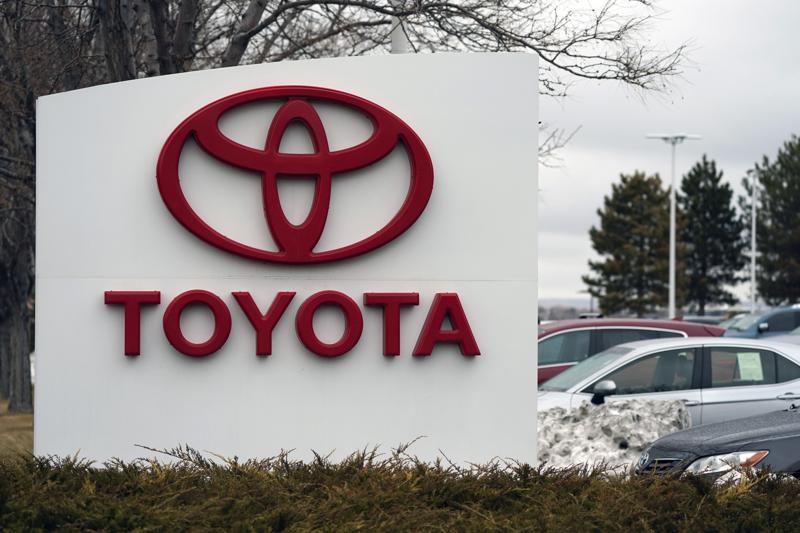
Toyota has reversed itself and now says its political action committee will no longer contribute to the Republican legislators who voted against certifying Joe Biden’s presidential election victory. The move by the Japanese automaker comes after a social media backlash over the contributions, including threats to stop buying the company’s vehicles. “We understand that the PAC decision to support select members of Congress who contested the results troubled some stakeholders,” Toyota said in a statement Thursday. “We are actively listening to our stakeholders, and at this time, have decided to stop contributing to those members of Congress who contested the certification of certain states in the 2020 election.” Last week the website Axios reported that Toyota led companies in donations to the 147 members of Congress who voted in January against certifying election results on the false grounds that the election was stolen from then-President Donald Trump. The Axios report, based on data gathered by Citizens for Responsibility and Ethics in Washington, said that Toyota donated $55,000 to 37 Republican objectors this year. That number was more than double the amount donated by the second-highest donor, Cubic Corp., a defense contractor in San Francisco, Axios said. Toyota will not seek refunds of contributions it already has made, spokesman Scott Vazin said Thursday in an email. He said the company hasn’t decided if or when it will resume the contributions. Immediately after Toyota’s spending was reported, the company defended it, saying it did not believe it’s appropriate to judge legislators based only on their electoral certification vote. The company took input from employees and government officials, Vazin said. But the most important factor was customer feedback, he said. “That really drives our decision making,” he said. Contribution data showed that 34 companies donated at least $5,000 to the campaigns and leadership political action committees of one or more election objectors this year, Axios reported. In addition to criticism on Twitter and elsewhere, the Lincoln Project, a group opposed to Trump, released an internet ad urging people to call Toyota to get the company to stop contributing to the GOP members of Congress. Shortly after the Jan. 6 attack on the U.S. Capitol, dozens of big companies, citing their commitment to democracy, pledged to avoid donating money to the 147 lawmakers. It was a striking gesture by some of the most familiar names in business but was largely an empty one. Six months later, many of those companies have resumed funneling cash to political action committees that benefit the election efforts of lawmakers whether they objected to the election certification or not. Walmart, Pfizer, Intel, General Electric, and AT&T are among companies that announced their pledges on behalf of democracy in the days after Trump supporters stormed the Capitol in a violent bid to disrupt the transfer of power. The companies contend that donating directly to a candidate is not the same as giving to a PAC that supports them. Republished with the permission of the Associated Press.
AT&T expands high-speed rural broadband in Alabama
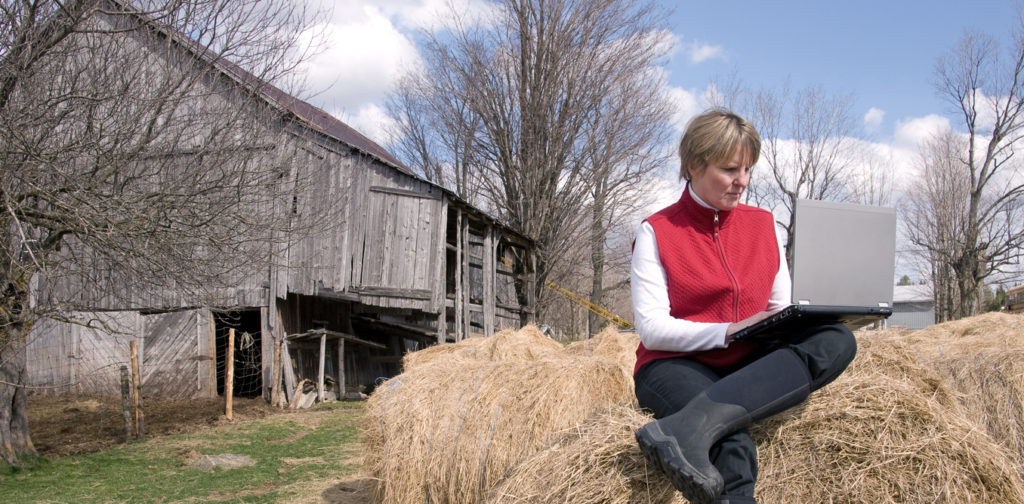
AT&T has expanded Fixed Wireless Internet for rural parts of 39 counties across Alabama that don’t have access to broadband the company announced Tuesday. “In today’s digital economy, access to reliable broadband service is critical. My colleagues and I are working hard to create an environment that supports private investment and enhanced broadband access for all Alabamians. I applaud AT&T’s continued investment and am pleased Fixed Wireless Internet is now available in parts of 39 Alabama counties,” said Alabama 4th District U.S. Congressman Robert Aderholt. “With the use of multiple technologies across Alabama, we will close the access gaps that exist in some of our rural communities.” FWI service delivers an internet connection with download speeds of at least 10Mbps and upload speeds of at least 1Mbps. The connection comes from a wireless tower to a fixed antenna on a customer’s home or business. This is an efficient way to deliver high-quality, high-speed internet to customers living in underserved rural areas1. “AT&T’s Fixed Wireless Internet is offering my family more options in our everyday lives, at an affordable price,” said Shannon Ary, AT&T Fixed Wireless customer. “With FWI, my husband and I can now work from home, which is life-changing, and our children have increased access to educational tools at home, not to mention videos and gaming with friends. We are excited to have access to this innovative technology and pleased AT&T continues to enhance high-speed connectivity in Arkadelphia and other rural communities across Alabama.” The towers used to provide this service are connected to AT&T’s network using AT&T fiber optics. AT&T has more than 2 million strand miles of fiber optics covering Alabama, which enables the company to offer a wide variety of products and services delivering the high-speed connectivity Alabama businesses and residents need. Parts of the following 39 counties in Alabama are now eligible for AT&T Fixed Wireless Internet service: Autauga, Baldwin, Barbour, Bibb, Blount, Butler, Calhoun, Chambers, Chilton, Colbert, Coosa, Cullman, Dallas, Elmore, Escambia, Fayette, Franklin, Greene, Hale, Jefferson, Lauderdale, Lawrence, Lee, Limestone, Lowndes, Macon, Marengo, Mobile, Montgomery, Morgan, Russell, Shelby, Sumter, Talladega, Tallapoosa, Tuscaloosa, Walker, Washington and Winston.
AT&T expands high-speed internet across Alabama
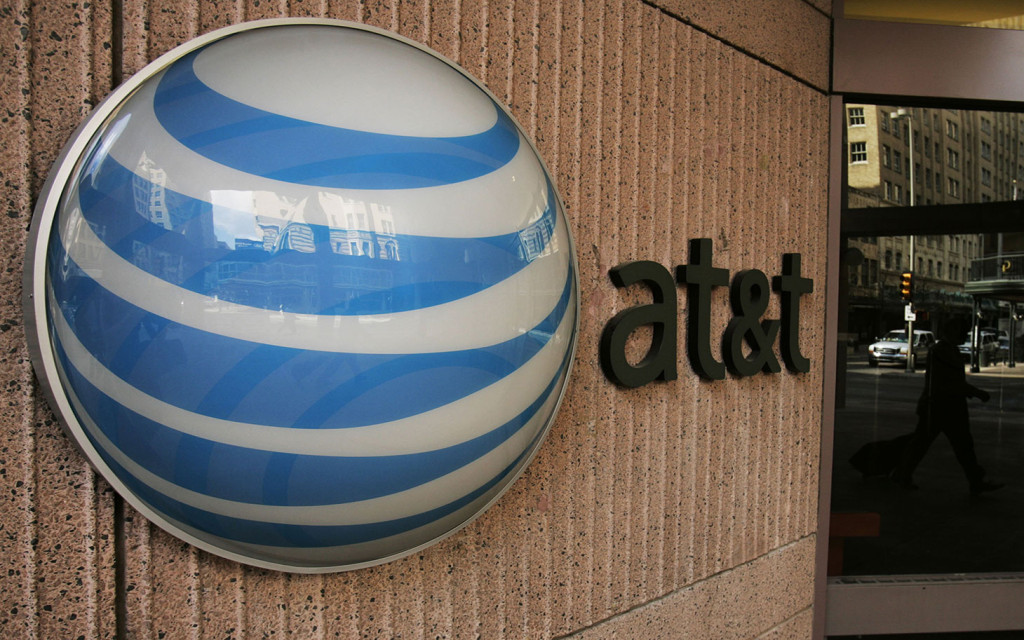
AT&T has expanded it’s high-speed internet service across the Sate of Alabama, impacting over 37,000 Alabama locations in parts of 32 counties. “The thousands of dedicated men and women who work for AT&T and call Alabama home are proud to provide the connectivity Alabama’s residents and businesses demand,” said president of AT&T Alabama, Wayne Hutchens.“ The expansion is in compliance with the FCC’s “Connect America Fund” which has committed to providing the approximately 23 million Americans, in rural areas without access to the internet, access to at least 10/Mbps fixed broadband. “In today’s digital economy, access to high-speed internet is critical, and I’m excited to see AT&T’s continued investment and innovation,” added Anniston-Republican and Senate President Pro Tem Del Marsh. “Using multiple technologies to enhance internet access across our state, we can close the remaining gaps and continue competing for the best jobs and grow economic opportunity for all Alabama.” The expansions take place mostly in rural areas, with few urban area expansion. AT&T has also expanded their AT&T Fiber network to over 150,000 locations in Alabama. Customers who purchase the “internet 1000” service can download 25 songs in one second, or a 90-minute HD movie in less that 34. “I am thankful for the leadership of our elected officials who work to ensure a pro-consumer business environment and am delighted to see so many Alabama residents benefiting from this innovative technology made possible by private investment,” said Business Council of Alabama President and CEO William J. Canary. According to a press release, parts of these counties in Alabama are now eligible for this service from AT&T: Autauga, Barbour, Bibb, Blount, Butler, Calhoun, Chambers, Chilton, Coosa, Cullman, Elmore, Escambia, Franklin, Greene, Hale, Jefferson, Lauderdale, Lawrence, Limestone, Lowndes, Macon, Marengo, Montgomery, Morgan, Russell, Shelby, Sumter, Talladega, Tallapoosa, Tuscaloosa, Walker and Winston.
Alabama makes strides in bringing high-speed internet to rural communities
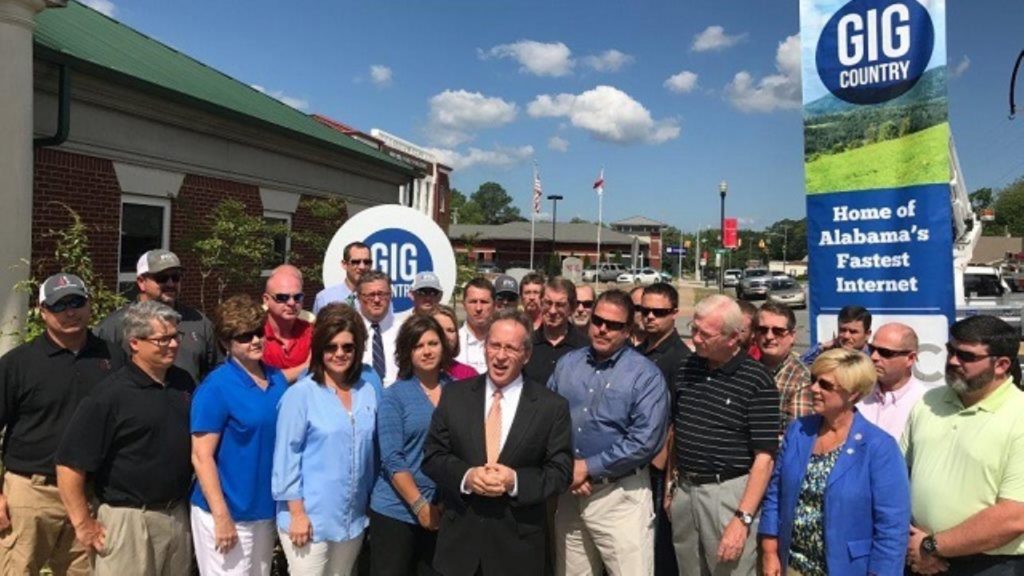
Fiber infrastructure is a key tool in attracting new and expanding businesses across Alabama, and local providers are actively working to install innovative internet technologies, particularly in the state’s rural areas. In recent years, AT&T has invested nearly $1.2 billion in Alabama to enhance its wired and wireless networks, in both urban and rural areas. While AT&T has been deploying fiber in Alabama since the mid-1980s, a new initiative allows local leaders to designate industrial parks, office campuses and other business locations as “AT&T Fiber Ready” and use that message in marketing materials. “In today’s world, internet connectivity is an important part of the puzzle,” said AT&T Alabama President Fred McCallum. “No matter the size or the sector, companies rely on high-speed internet access to grow and scale their business.” “Our goal with Fiber Ready is to highlight the existing presence of fiber optics and high-speed communications infrastructure and — hopefully — in turn, support economic developers and local leaders as they diligently work to attract new businesses and drive growth for the businesses that already call Alabama home.” To date, 31 sites in the state have been designated Fiber Ready. Rural targets Other local providers are also making strides in boosting connectivity in the state. Just last month, Farmers Telecommunications Cooperative Inc. (FTC) announced a new fiber infrastructure investment in Marshall County, starting in Albertville and later moving into Boaz and Guntersville. Angela Till, deputy secretary of the Alabama Department of Commerce, speaks at an AT&T Fiber Ready event in Prattville. (Made in Alabama) The Rainsville-based company serves the northeastern corner of Alabama, including Jackson, Marshall and DeKalb counties. In 2015, FTC was the first provider in Alabama to launch active Ethernet-Based GIG internet to residents and small businesses. “Active Ethernet service essentially means each customer is served with a dedicated fiber from the serving wire center,” said Fred Johnson, FTC’s executive vice president and general manager. “This means that from the wire center to the customer there is dedicated bandwidth rather than a sharing of bandwidth between customers as in the case of a passive optical network (PON).” In all fairness, Johnson continued, the public internet itself is shared bandwidth, so that distinction must be allowed. “Nevertheless, assuming that wire centers are adequately supported, as ours are, with high-capacity links, the customer experience is improved because there is less shared bandwidth in the distributed portion of the network,” he said. “A PON essentially takes a single fiber and ‘splits’ it multiple times among a group of customers who effectively share the bandwidth of that fiber.” Johnson added that every business park in the FTC service footprint has optical fiber available. Service may be provisioned in any of those parks up to and beyond the 1 Gig level. “Having ‘GIG’ residential service available has brought the area a degree of notoriety — we have an even more robust system than the ‘Gig Poster Child’ of Chattanooga — but is less significant economically than the even higher capacity afforded the business and industrial community,” Johnson said. “The local economic development associations inform us that almost every prospect checks off broadband availability as a condition precedent to any further evaluation. To date, I am unaware of FTC’s facilities failing this checkoff. They are literally as modern as any in the country.” Recruiting 21st-century jobs Alabama Sen. Clay Scofield of Guntersville said FTC is providing critical support to the quality of life in the region. “We’re very excited that Farmers has made the decision to expand in Marshall County,” he said. “It’s a significant investment that we think is going to have a huge impact on economic development in our area.” The region is trying to recruit 21st-century jobs, Scofield said. “The only way we’re going to be able to do that is with this type of infrastructure,” he said. “From here and into the future, high-speed internet is going to have to be just as important for a utility to offer as power and water are. “It’s going to be critical that our communities throughout the state of Alabama have access to this if we want to really grow, not only to recruit jobs but also to recruit people to live in those areas.” Scofield is sponsoring legislation that would provide incentives to companies to expand broadband into rural and underserved areas of the state. “It’s very costly to expand as it is, and in our more urban and suburban areas, it’s easier for companies to make it profitable. But in rural or poor urban areas, it’s not as profitable for them to expand,” he said. Scofield’s bill stalled in the House during the last legislative session, but he continues to work on it and intends to introduce it again in the next session. He said he recently spoke to the Marshall County Realtors Association, and he asked them how many of their clients inquire about internet connectivity before they purchase a home. “Every hand went up. This is really going to affect smaller areas’ ability to recruit people to move there,” he said. It’s also important when it comes to training the workforce of the future, Scofield said. “We’ve done a great job in Alabama of getting technology into the classroom, but what happens when those students go home? I think this is critical when we look at workforce development and training to make sure we have connectivity,” he said. ‘Highways of the future’ Alabama Rep. Kyle South of Fayette, who also is general manager of West Alabama Cable TV, agreed that a robust fiber infrastructure is key to a region’s economic growth. Officials in Thomasville celebrate the arrival of AT&T’s Fiber Ready initiative in the rural Alabama community. (Contributed) “There’s no question it’s terribly important,” he said, citing the automotive industry as an example of the industries that rely on the network. Suppliers and auto manufacturing plants operate on a just-in-time strategy, with parts being shipped and received as they are needed. “There’s no way they can stay on schedule without proper communication between
Bernie Sanders urges government to kill AT&T-Time Warner merger
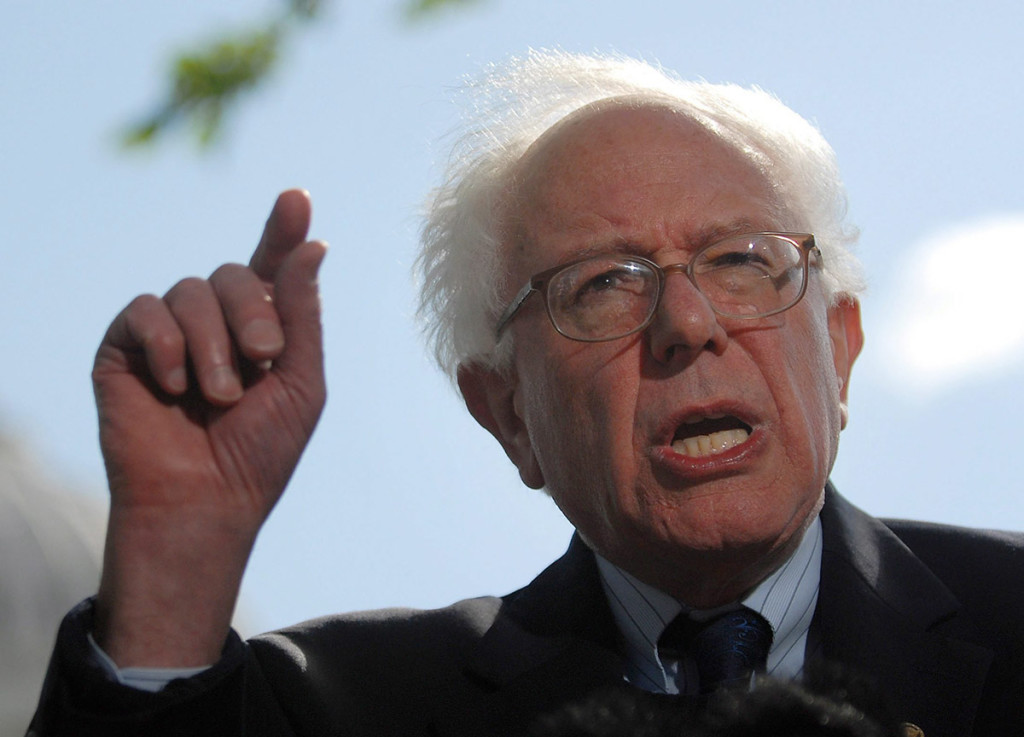
Sen. Bernie Sanders is calling on the government to block a proposed $85 billion merger of communications giants AT&T and Time Warner. The Vermont independent and former contender for the Democratic presidential nomination warns in a letter to President Barack Obama‘s Justice Department that the merger would lead to less “competition and diversity of content” and would “provide consumers less while charging them more.” There is bipartisan opposition to the proposed acquisition by broadband and wireless provider AT&T of Time Warner, which owns CNN, HBO and Warner Bros. Sanders is warning that the proposed deal could lead to a wave of mergers in an already concentrated media industry. Donald Trump has swung against the merger but Hillary Clinton has been more cautious. Republished with permission of the Associated Press.
CPI study: There are six lobbying entities to every Alabama lawmaker

A recent study by The Center for Public Integrity (CPI) has detailed the reach that national lobbying groups enjoy across the country. According to the study, 20 lobbying entities have access to all 50 states, including Aflac, the National Rifle Association (NRA), Pfizer, Wal-Mart and Anheuser-Busch. While all of these agencies and more are licensed to lobby in all 50 states, and a laundry list of others are allowed to lobby in fewer, the biggest lobbying presence in Alabama comes from the Alabama Education Association, Southern Company, AT&T, the Business Council of Alabama and Blue Cross/Blue Shield of Alabama. A lot of work has obviously been done on the part of these lobbying groups, as Alabama lawmakers have made great strides in expanding technology, providing tax breaks to small businesses and providing robust increases to the state’s education budget. But other entities are seemingly at work influencing other Alabama legislation as well. Among the bills on this week’s Senate calendar is SB296 from Sen. Tim Melson (R-Florence), which would allow epinephrine auto-injectors to be administered by “non-medical persons” at “summer camps, day care centers, restaurants, places of employment, and other entities.” The CPI study lists Mylan, Inc. among the entities which has significantly expanded operations over recent years. Mylan lobbies for EpiPens to be available in schools and restaurants and has expanded its lobbying efforts into 36 states since 2010 – one of which is Alabama. Another group which has expanded its lobbying efforts across the country is Uber Technologies, Inc., which has expanded into 35 states since 2010 and has recently seen its operations approved in Huntsville, Birmingham and Montgomery. Other groups include Excellence in Education National, which pushes for the establishment of charter schools and expanded technology access for students, and Xerox Corporation, which has pushed its state government services like speed cameras and state health insurance exchange software. Still other entities have decreased their presence across the country but remain active in Alabama. Reckitt Benckiser Group PLC has reduced its reach by four states due to a decision to allow competitors to make generic versions of its opioid-addiction drug Suboxone. SB280 from Sen. Priscilla Dunn (D-Bessemer), which also appears on this week’s calendar, would allow drug prescribers to indicate that a “generic equivalent drug” should not be used for participants in the Public Education Employees Health Insurance Program (PEEHIP). Currently, PEEHIP enrollees must receive a generic drug when available, assumedly for cost-saving purposes. While it is unclear that lobbying efforts have had any impact on the aforementioned legislation, the CPI study notes that there are six lobbying entities to every Alabama lawmaker.


